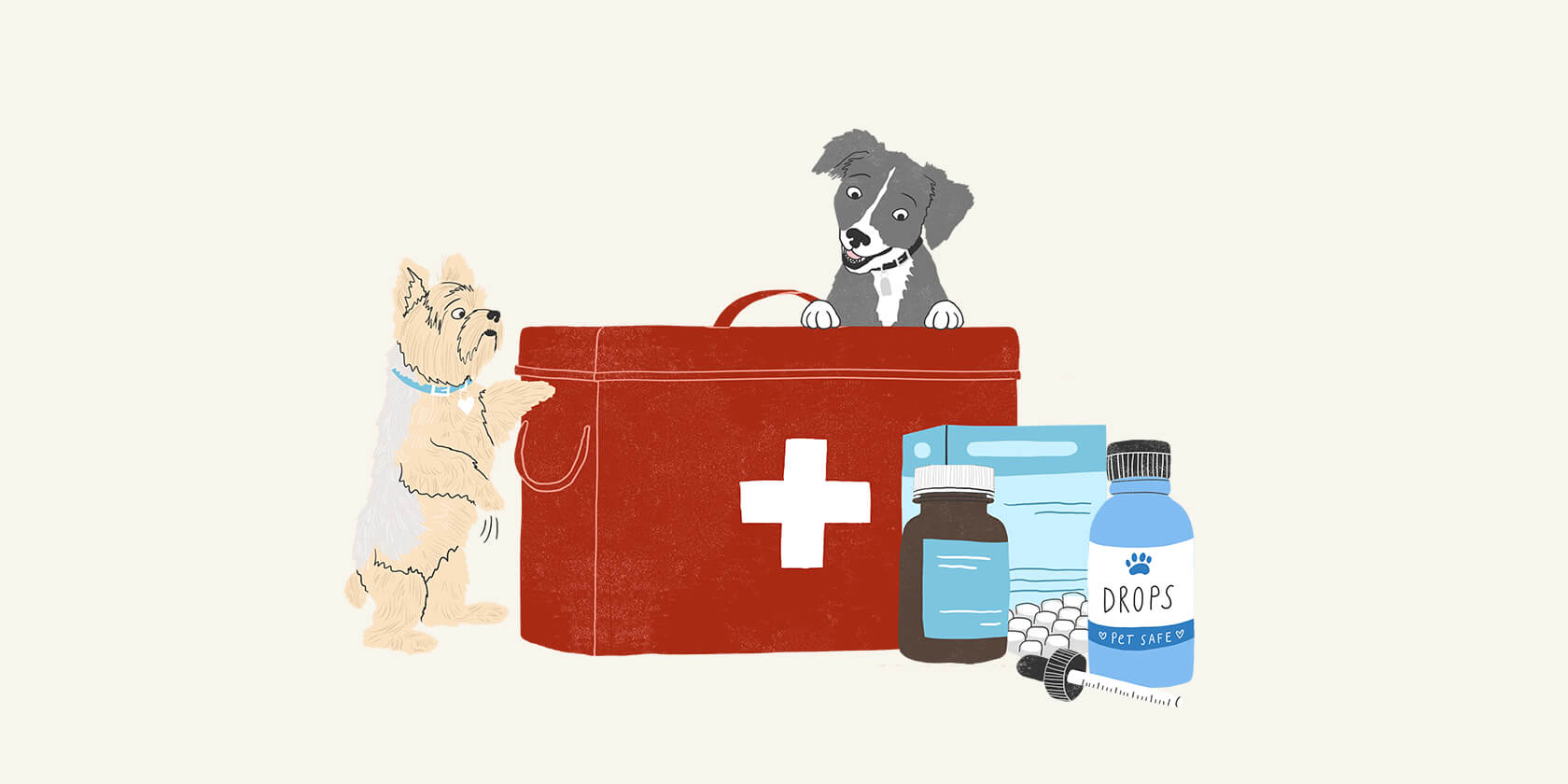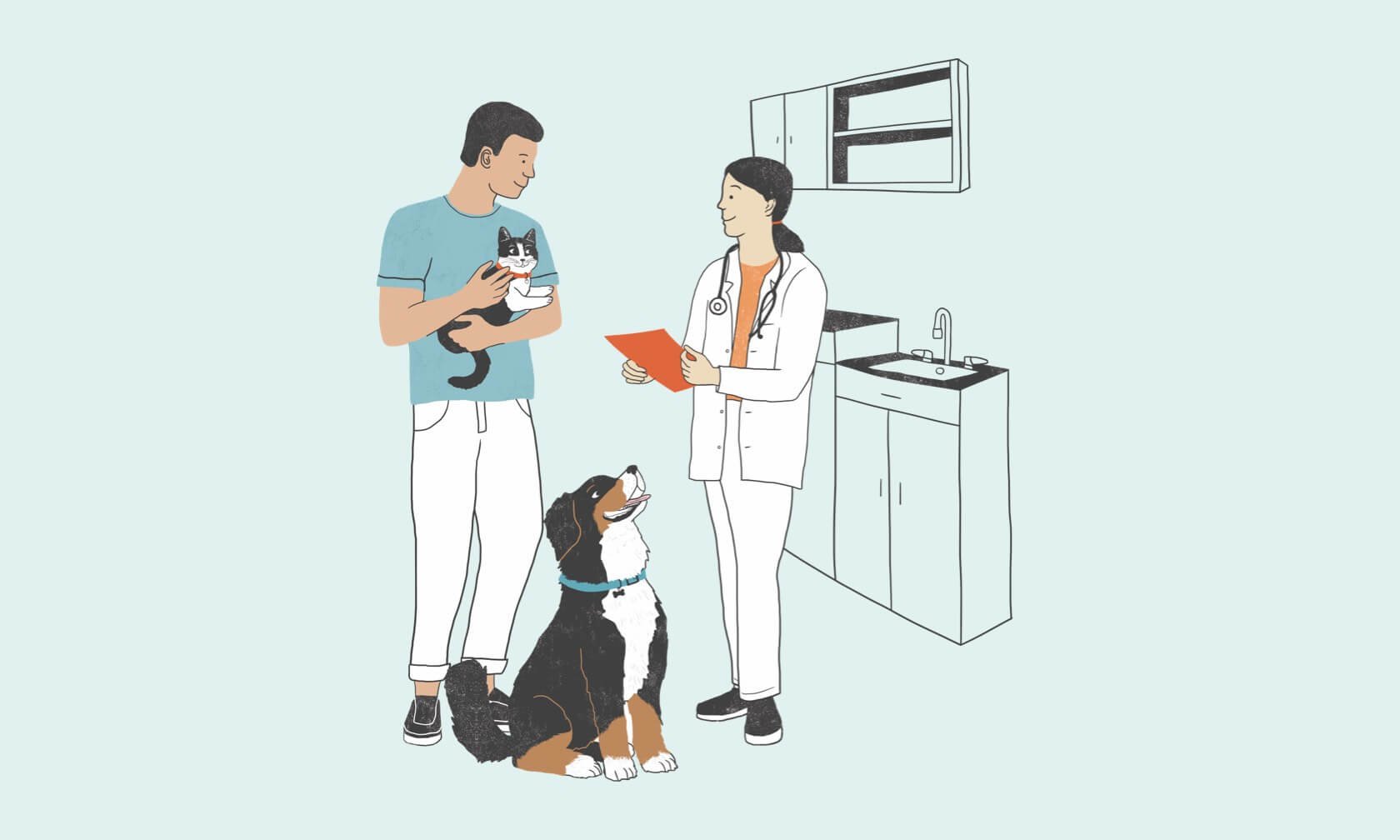Vitamins are compounds that provide essential micronutrients to the body. They’re needed in small quantities to aid in the proper functioning of the body. These essential micronutrients cannot be produced by the body on their own. If we (or our pets) don’t get them by proper diet or supplementation, health issues can develop, such as bone density, poor digestion, skin issues, or certain diseases. For example, dogs deficient in B12 may suffer from diarrhea, lethargy, weight loss, or even seizures. Deficiencies in Vitamin D can cause heart issues and bone disorders.
Most health-conscious adults take a multi-vitamin daily or attempt to eat a healthy, well-balanced diet to obtain their essential micronutrients. However, if a pet or human eats a nutritious well-balanced diet, they should not need to take a vitamin. Additionally, doctors often recommend different vitamin supplements for certain health conditions.
If vitamin supplements seem essential for us, do our dogs need them? The answer to this question is maybe. There are a few things to know first. Talk to your veterinarian — if your pet is eating a nutritionally balanced diet, they should not need vitamins.

What Vitamins Are Essential for Dogs, and How Do They Get Them?
There are specific vitamin requirements for dogs. These include:
- Vitamin K. This is essential for the activation of clotting factors as well as bone proteins. Check with your vet on the dose because your dog can overdose on fat soluble vitamins such as vitamins D, E, A and K.
- Vitamin B1. This is essential for the metabolism of carbohydrates. It also activates ion channels in neural tissue.
- Vitamins B2 and B3. These are essential for enzyme functions.
- Vitamin B6. This is essential for glucose production, nervous system functions, and the generation of red blood cells. It’s also necessary for hormone regulation.
- Folic acid. This is essential for metabolism and protein synthesis
The good news is that all of these needs are met when your dog is fed high-quality commercial dog food. These diets are specially formulated to be complete and balanced with regards to all vitamins and minerals, and requirements are established by The Association of American Feed Control Officials (AAFCO). Typically, each serving of a well–balanced diet contains about 40 nutrients in the proper amounts that your dog needs. Normally, additional supplementation with vitamins is not needed except when medical conditions arise that may interfere with the proper absorption of the nutrients.
When Are Vitamin Supplements Needed for Your Dog?
There are times when supplementation is crucial for dogs, and there are certain health issues that can benefit from the addition of vitamins and mineral supplements. Here are some of the reasons your veterinarian may recommend adding vitamins to your dog’s diet.
Inflammatory conditions
These can inhibit the absorption of nutrients. When a dog is suffering from a condition that causes inflammation, it has been found that giving them vitamin C and vitamin E can reduce that inflammation. Check with your veterinarian before starting such a supplement.
Stress
Dogs who are constantly stressed, such as those with separation anxiety, produce high cortisol levels, which can lead to inflammation and decrease the proper functioning of the digestive system. When the digestive system’s functions are impaired, nutrients cannot be used properly. Therefore, a vitamin supplement may be recommended by your veterinarian.
Digestive issues
When dogs suffer from an imbalance of gut flora or have impaired ability to digest and absorb their food due to illness, they do not get the proper amounts of nutrients to sustain normal body functions. Only when the gut is functioning efficiently can dogs absorb micronutrients from their food and maintain a healthy immune system.
Food sensitivities and/or allergies
Food allergies can create inflammation in the gastrointestinal tract. This prevents absorption of micronutrients as well as inhibits the immune system.
Diseases
There are certain diseases, such as inflammatory bowel disease or colitis, that inhibit nutrient absorption. But in addition to diseases that directly affect the gastrointestinal tract, there are other diseases, such as thyroid abnormalities, other endocrine diseases, or pancreatitis, that can cause vitamin deficiencies.
Medications
Some medications affect the body’s metabolic process and cause depletion of nutrients. Others interfere with the absorption of some vitamins as well.
Homemade diets
When dogs are fed homemade diets, they should be given vitamin supplements to ensure their essential micronutrient requirements are met. Owners may not always be able to obtain the dietary ingredients and specific vitamins that their dog needs.
Senior dogs
Vitamins can help ease the aging process of senior dogs as well as support joint issues.
Dangers of Over-Supplementation
It is always best to consult with your veterinarian regarding any questions you have about nutrition. Just as the lack of proper nutrients is harmful, giving specific vitamins and minerals in quantities too high can result in life-threatening toxic effects.
Here are two examples of the risks of over-supplementation.
- Vitamin A. Over-supplementation can result in issues with your dog’s coat and skin, weakness, constipation, and undesirable increased bone development that can lead to stiffness, pain, and limited movement.
- Vitamin D. Over-supplementation of this vitamin can result in kidney failure and even death.
How to Select a Safe, Quality Vitamin Supplement for Your Dog
Animal supplements are regulated by the FDA, but the safety standards of each product are established by the National Animal Supplement Council (NASC). They devised the guidelines for labels and test products to ensure that the ingredients list is accurate and that the concentrations are as stated. You can feel good about your options as long as you buy products from reputable sellers/manufacturers, but how can you select the best supplement?
- Buy products that are backed by science and researchers. Your veterinarian is a great resource to help find these products.
- Read labels and be sure that the vitamins your dog needs are listed in the concentrations required. Your veterinarian or a veterinary nutritionist is the best resource to determine the amounts your dog needs.
- Look for lot numbers on the package. A lot number is an indicator that the company complies with all control checks and safety standards.
- Do not use human supplements unless approved by your veterinarian! They can contain ingredients toxic to dogs.
ZPC-01557R1



